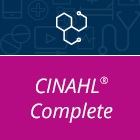Nursing & Health Sciences Research Journal
Abstract
Introduction: Nurses are the most trusted professional group in the United States. As such, examination and exploration of concepts or phenomena, either positively or negatively affecting nurses’ ethical decision-making and moral actions, are needed. While nursing literature is abundant on moral distress and its negative impact, literature on moral comfort (a positive phenomenon) is sparsely available. The purpose of this concept analysis is to explore MC within nursing literature and other disciplines to identify moral comfort’s defining attributes, antecedents, consequences, and empirical referents.
Method: Walker and Avant’s eight-step concept analysis approach was used.
Results: Six articles were included in this concept analysis. Two defining attributes emerged (the nurse’s willingness to take moral action despite personal consequences and peace of mind related to taking moral action. Antecedents included internal factors (moral commitment, moral competence and moral courage with nursing experience and expertise) and external factors (administrative support/empowerment, participation in decision-making, access to information and human/material resources, ethical climate, and role clarity/boundaries). The main consequence of moral comfort is nurses’ peace of mind. Empirical referents were: 1) nurses taking action by speaking out and questioning, 2) nurses’ verbalization of feelings of peace and/or satisfaction with their decisions and actions, 3) organizational ethical climate and support and 4) nurses’ individual moral qualities and expertise.
Conclusion: Although the body of knowledge was limited, the results of this concept analysis provide a foundation for future exploration, examination, and expansion of our knowledge and understanding of moral comfort in nursing.
Recommended Citation
Bermudez, N. (2022). A Concept Analysis of Moral Comfort in Nursing. Nursing & Health Sciences Research Journal, 5(1), 37-46. https://doi.org/10.55481/2578-3750.1132
Creative Commons License

This work is licensed under a Creative Commons Attribution-NonCommercial-No Derivative Works 4.0 International License.



